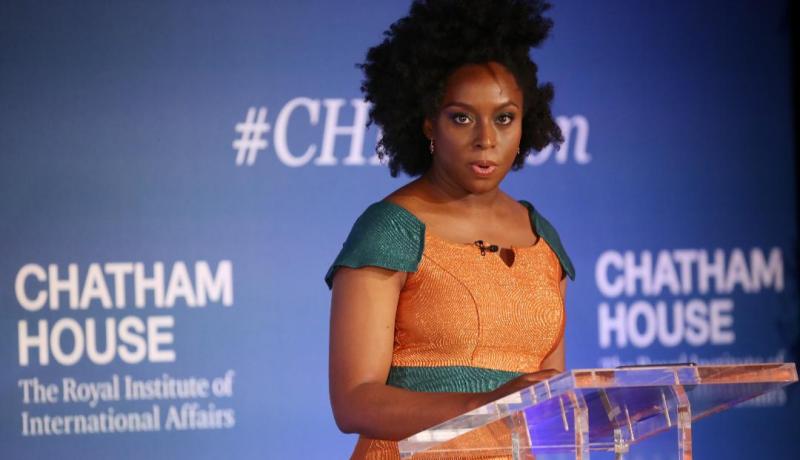


For example, in Aunty Uju's relationship with The General, he would give her as much money as she needed, but never gave her so much at one time that she wouldn't have to come back asking for more. However, the economic aspect of marriage is also important in Nigeria, where adultery is portrayed as common and both marriage and extramarital affairs are shown as quite transactional. The most important example of this is Obinze's attempted green card marriage to Cleotilde in London.


The book questions the institution of marriage, as marriage is wielded more often as a means of economics than of love. Through Ifemelu's hair changes, Adichie addresses the ways in which hair is political, through the views of many female characters in the book who want to sport natural hair but feel limited by the way natural hair and braids are not taken seriously in the business world, and in which it is explicitly not political, writing that people automatically viewed Ifemelu's Afro as a statement that she did not intend. In addition, the stages of her life are seen through her relationship to hair: her mother having beautiful hair when Ifemelu was a child and then cutting it off in her years of religious extremism, Aunty Uju and her having to relax their hair to be taken seriously in America, the embarrassment of her tiny Afro after a certain relaxer starts to make her hair fall out, and her final love and acceptance of her natural hair gained by cultivating relationships with other natural-haired black women online. The first half of the story is framed by Ifemelu visiting a hair salon in Trenton, New Jersey to get braids in preparation for returning to Nigeria. Hair is incredibly important to Ifemelu's experience of Nigeria and America as, especially in America, it can represent one's cultural and individual identity or be wielded as a means of racism and oppression.


 0 kommentar(er)
0 kommentar(er)
